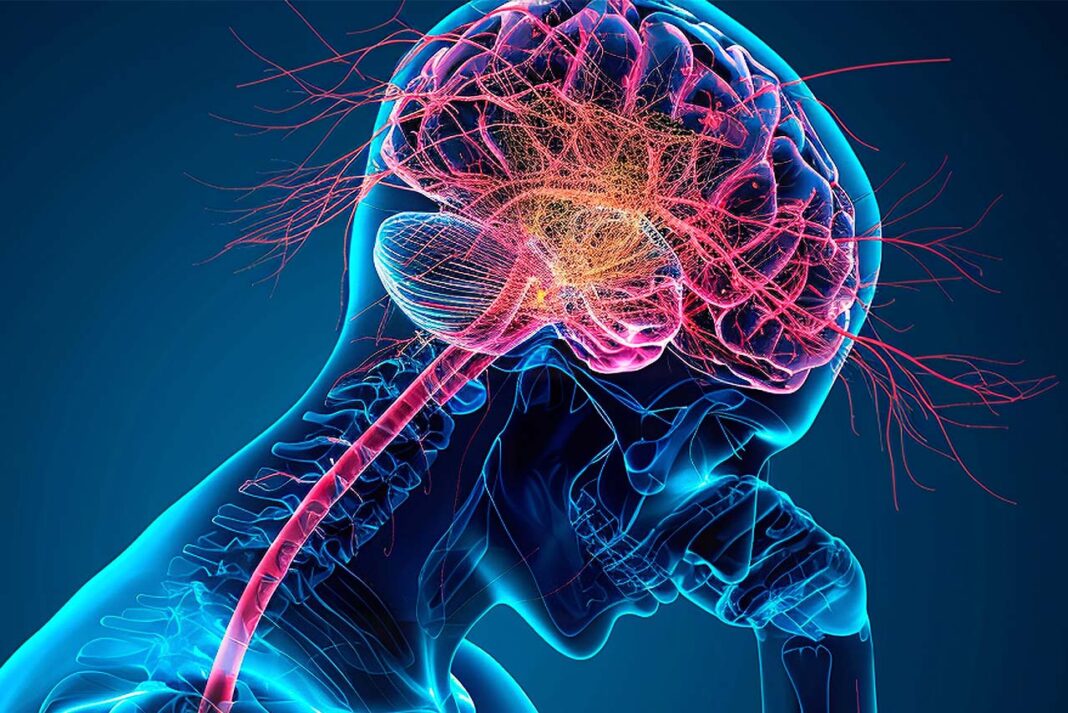The Chemistry of Our Nerves: How Hormones Influence Neuropathy
In daily life, we often hear expressions like “my nerves are shot” or “my hands go numb from stress.” While these may sound metaphorical, growing scientific evidence suggests they may reflect real biological processes. Recent research increasingly points to the delicate interplay between our nervous system and hormonal balance.
Nervous system health can be compromised not only by mechanical or structural issues but also by hormonal imbalances. In this article, we will explore how hormones affect the nervous system and how they contribute—both psychologically and biologically—to conditions such as peripheral neuropathy.
What is Neuropathy?
Neuropathy refers to damage or dysfunction of the nerves, often presenting as numbness, tingling, burning sensations, or pain—typically in the hands and feet. While diabetes remains one of the most common causes, emerging research shows that hormonal imbalances also play a significant role in its development.
Hormones and the Nervous System: How Deep is the Connection?
The human body produces dozens of hormones, many of which are closely interconnected with the nervous system. Among them, the following have been identified as playing key roles in neuropathic processes:
1. Cortisol (The Stress Hormone)
Chronic stress leads to persistently elevated cortisol levels, which can impair both central and peripheral nerve functioning. People under long-term stress may experience symptoms such as hand tremors or tingling sensations in the feet—potentially linked to cortisol’s effects on nerve transmission.
Case Example: A 42-year-old teacher reports a burning sensation in her hands during exam periods. Despite no organic cause being found, psychological assessment reveals chronic stress as the likely trigger.
2. Thyroid Hormones (T3 and T4)
In hypothyroidism, where the thyroid gland underperforms, metabolism slows down—adversely affecting nerve nutrition and regeneration. Studies show a higher prevalence of peripheral neuropathy in individuals with hypothyroidism, particularly in women.
Symptoms such as “numb hands” or “tingling feet” may accompany classic signs like fatigue and weight gain, suggesting a broader impact of thyroid dysfunction.
3. Estrogen and Progesterone
Hormonal shifts during menopause are often accompanied by neuropathic symptoms like tingling or numbness. This may be due to the decreased neuroprotective effects of estrogen on nerve cells. In addition, heightened anxiety during this period can exacerbate physical sensations.
Many menopausal women report symptoms like “my hands are tingling, I feel like my nervous system is collapsing,” reflecting the complex intersection of biological and emotional changes.
4. Insulin
While diabetic neuropathy is commonly attributed to uncontrolled blood glucose levels, insulin itself plays a direct role in nourishing nerve cells. Therefore, neuropathy may result not just from glucose fluctuations, but also from insulin’s impaired function or availability.
The Psychological Dimension: The Hormone-Emotion-Nerve Triangle
Hormonal shifts influence not only biological processes but also emotional well-being. Prolonged stress, anxiety disorders, and emotional trauma can disrupt hormonal equilibrium, thereby triggering neuropathic symptoms. In somatization disorders, individuals experience very real physical complaints despite no detectable neurological damage.
A patient once described: “I constantly feel on edge, and at night my feet start tingling.” Such complaints should be addressed through both medical and psychological intervention.
Why Psychotherapy Matters
When neuropathic symptoms have psychological roots, pharmacological treatment alone may be insufficient. Psychotherapy can help individuals identify stressors, release emotional burdens, and strengthen the mind-body connection. Cognitive Behavioral Therapy (CBT), in particular, has been shown to be effective in managing bodily sensations. Complementary practices such as breathing exercises, mindfulness, and relaxation techniques may also be beneficial.
When to Seek Professional Help
If you experience persistent numbness, tingling, or burning in your hands or feet—especially if these symptoms correlate with stress or hormonal changes—it’s important to seek both neurological and endocrinological evaluations. Simultaneously, psychological support may be crucial to breaking the cycle of symptoms.
Conclusion: Understanding Our Nerves is Understanding Ourselves
The nervous system is not just a physical entity; it also carries our emotional experiences. There is a powerful, though often invisible, connection between our hormones, our emotions, and our nerves. When we say, “my hands are going numb,” it may be a signal from our brain and body: “Slow down, feel, and listen to yourself.”
References
Anand, P. (2004). Neurotrophic factors and their receptors in human diabetic and non-diabetic neuropathies. Progress in Brain Research, 146, 477–492. https://doi.org/10.1016/S0079-6123(03)46031-9
Dhabhar, F. S. (2014). Effects of stress on immune function: The good, the bad, and the beautiful. Immunologic Research, 58(2–3), 193–210. https://doi.org/10.1007/s12026-014-8517-0
Giacco, F., & Brownlee, M. (2010). Oxidative stress and diabetic complications. Circulation Research, 107(9), 1058–1070. https://doi.org/10.1161/CIRCRESAHA.110.223545
McEwen, B. S. (2007). Physiology and neurobiology of stress and adaptation: Central role of the brain. Physiological Reviews, 87(3), 873–904. https://doi.org/10.1152/physrev.00041.2006
Radanovic, M., & Mansur, L. L. (2016). Hormonal influences on cognition and neurological diseases. Dementia & Neuropsychologia, 10(2), 87–95. https://doi.org/10.1590/S1980-57642016DN1002002


